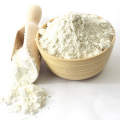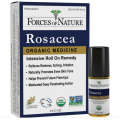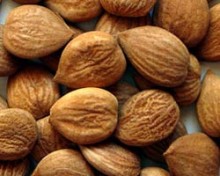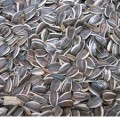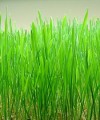 Loading... Please wait...
Loading... Please wait...- Home
- About Us
- Shipping, Returns & FAQ's
- Contact Us
-
For Your Information
- Canadian Customers Have a Choice if Shipping Via UPS
- Aura Cacia Homemade Aromatherapy Recipes
- Bella Nella Altered Art & Paper Crafts Blog
- Forms of Herbal Preparations
- Laundry Tips To Conserve Energy Blog from The Laundress
- The Story of Frontier Natural Products Co-Op
- Sovereign Silver Hydrosol and Aloe Protocol Stops Downward Spiral of Gut Dysbiosis
- Disclaimers
- Recommended Links
- RSS/Recent News
- The Story of Typhoon Housewares
- Reviews/Testimonials
- Raw Ingredients for Mfg
Apricot Kernels (Seeds) Bitter Raw Blenheim/Pederson Organic Bulk
Product Description
 The apricot tree (Prunus armeniaca L.) originated on the border of Russia and China and has been cultivated in China for at least 3,000 years, according to the University of Georgia. English settlers probably introduced the fruit to the U.S. East Coast while Spanish explorers introduced it to monasteries in California. The apricot seed is often called a kernel. It has a very hard shell (which has been removed) surrounding a nut that resembles an almond.
The apricot tree (Prunus armeniaca L.) originated on the border of Russia and China and has been cultivated in China for at least 3,000 years, according to the University of Georgia. English settlers probably introduced the fruit to the U.S. East Coast while Spanish explorers introduced it to monasteries in California. The apricot seed is often called a kernel. It has a very hard shell (which has been removed) surrounding a nut that resembles an almond.
Bitter apricot kernels are, like most nuts and seeds, very nutritious. Among the nutrients they contain is one called Amygdalin is also referred to as Vitamin B17, in its extracted pure concentrated, it is known as Laetrile; this is used as a natural therapy for cancer patients in some clinics supported by other non-toxic therapies and good nutrition. Laetrile is simply a more soluable and concentrated form of Amygdalin, adding Apricot Kernels to your diet is a natural way to add Amygdalin (B17) to your diet and protect against cancer.
Amygdalin was first extracted and named over 100 years ago and has been in pharmacological dictionaries since that time as being non-toxic. The assertion that taking Apricot Kernels poses a health risk is simple ignorance, and of course pharmaceutical companies cannot lay any claim to a food substance, and therein lies the source of much mis-information. Apricot Kernels are a staple part of the diet for many peoples, and thousands of others all over the world choose to take Apricot Kernels for the health benefits; it would be interesting to see the reaction of the Hunzas if they were told the ludicrous claims of the Western world in respect of Apricot Kernels!
It does have a poison locked away in it - one of its constituents is cyanide, (also found in Vitamin B12, almonds, cassava, cherries, strawberries and a host of other foods we consume), but it is locked into the compound Amygdalin, it is chemically inert and completely harmless to normal cells. In the same way, common salt (sodium chloride) is safe to eat despite containing the poison chlorine; of course if you ate too much salt at one time you would be ill. This is true of any substance, and would apply to Apricot Kernels. Amygdalin is actually less toxic than salt and sugar.
Alternative health practitioners use apricot seeds in treating respiratory diseases such as bronchitis, asthma, constipation, emphysema, coughing and wheezing. Apricot seeds can also serve as a cough suppressant and expectorant, besides being used as a laxative because of its oil.
According to an article by medical researcher Jonathan Bell, apricot seeds can boost the immune system. Although many conventional doctors don’t support this theory, Mr. Bell and other alternative health practitioners contend apricot seeds prevent bad cells from forming which strengthens the immune system. Bell believes that eating about seven grams of apricot seeds daily can protect someone from developing cancer. He bases his theory on apricot seeds having toxin cyanide which destroys bad cells.
Although refrigeration isn’t required, raw apricot seeds can be extended as long as two to three months by keeping them in a refrigerator, preferably inside a meat drawer. Apricot seeds remain fully potent for at least eight months, while unrefrigerated raw seeds only stay good for about six months. Apricot seeds should never be refrozen. Because raw apricot seeds are bitter, they taste better when ground. They can be used in salads, shakes or smoothie drinks..
It’s a common misconception that roasting raw apricot seeds will weaken the laetrile, which is the vitamin B-17 of the seed. However, this is not true. On the other hand, roasting seeds results in less nutritional benefits as the roasting process reduces the chemical activity to enzymes in the stomach, mouth and intestines.
There is a natural limit to the proper number of kernels that can be safely consumed at one sitting or within a day's time. Generally that limit is the number that one would eat if he or she were also eating the whole apricot. A large man might eat eight or nine apricots at a time before becoming full; a small woman might eat five or six; a child probably would eat but two or three; and this could be repeated three or four times a day so long as the stomach was given several hours between times to digest the last meal. To be on the safe side suggest to eat no more bitter apricot kernels than half the number you likely would eat if you were consuming the entire fruit. Cutting the number in half, as suggested above, will provide an extra safety margin. Nevertheless, pay attention to your body's signals. Three of the signs of toxicity from too many kernels are dizziness, blurred vision, and nausea. If any of these occur, then remember how many kernels you ate at one time and simply make sure you don't repeat that experience. If the symptoms persist or if they are severe, see a physician immediately, because cyanide poisoning is a serious matter. But, really, none of this is likely to happen if you practice moderation and common sense. People who swallow a whole can of pepper or an entire bottle of aspirin should expect to become ill. All we are saying is that the same is true of Apricot Kernels.
When grinding apricot kernels in a blender, process only a half-cup at a time to avoid having them compact and become butter-like. The usual shelf life of Apricot Kernels at room temperature is eight months but, if kept under refrigeration, it is about more than a year.
Although apricot seeds can improve health and help protect the body against cancer, they should only be used under the supervision of experienced practitioners and herbalists. Because the vitamin B-17 contained in apricot seeds produces a metabolite of cyanide, apricot seeds shouldn’t be used on children under 12, according to the AltCancer.com website. They shouldn’t be combined with skullcap, astragulus or kudzu root. Overdosing on bitter apricot seed can cause nausea, dizziness, headache and vomiting. What’s more, people with diarrhea shouldn’t eat apricot seeds.
Our natural California-grown apricot seeds are not genetically modified and have not been pasteurized, steamed, or cooked in any way therefore retaining the maximum complement of natural ingredients. One pound has approximately 750 kernels.
Botanical Name: Prunus Ameniaca
Origin: USA
Notes: Non-GMO. Vegan. Kosher Certified. Non-irradiated. Processed without chemical fertilizers or pesticides, and tested free of any chemical residue.
Specifications are subject to change without notice.
* FDA disclaimer
More Info
What Are the Benefits of Apricots Seeds?
Using Apricot Seeds for Medicinal Purposes: Health Benefits from Apricots
Why Eat Apricot Seeds by Jonathan Bell
Answers To The Most Frequently Asked Questions About Vitamin B17 & Apricot Seeds
Find Similar Products by Tag
You Recently Viewed...
Currency Converter
Choose a currency below to display product prices in the selected currency.




